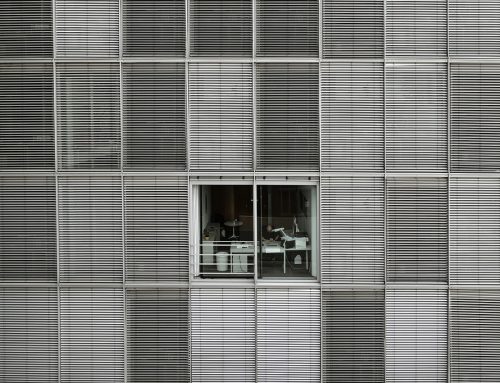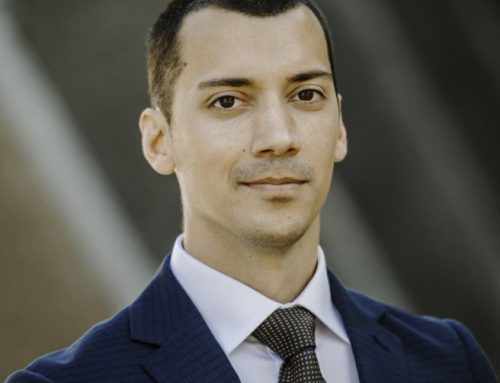We are pleased to announce the fourth conference of the International Consortium of Critical Theory Programs (ICCTP) to be held at Rijeka, Croatia on June 16-19, 2018 on the topic of “The Critique of Violence Now”. The conference will take place at the Center for Advanced Studies – South East Europe, University of Rijeka, and will be sponsored in conjunction with the Institute for Philosophy and Social Theory, University of Belgrade, Serbia.
The Consortium is jointly housed at the University of California, Berkeley and Northwestern University with support from the Andrew W. Mellon Foundation. The task of the Consortium is to establish an active network of programs, projects, centers and institutes that will expand the global reach and form of critical theory for our time. The Consortium seeks to document, connect, and further the new and varied forms that critical theory has assumed in light of contemporary global challenges, including economic and political challenges to the university as an institution charged with the task of safeguarding and promoting critical thought.
The Consortium is meant to open new institutional links, overcome forms of hemispheric disconnection, and to pursue collaborative forms of interdisciplinary knowledge, guided by questions such as these: What are the current historical and global conditions in which the value of critical thought is challenged? How do we best describe and evaluate the prevailing forms of global power in their regional specificity that shape and constrain our intellectual life as it crosses academic and popular spheres, and how can critical thought rise to the challenge of these new global challenges through effective and thoughtful political engagement? By now, three conferences have been held, in Bologna, São Paulo and Johannesburg, on the topics of the critical tasks of university, the ends of democracy and reflections on memory and political time.
The issue of violence will be the focus of the fourth ICCTP conference, framed by the question, “what is a critique of violence for the present?” Can we have develop a global notion of “critique” without a “critique of violence”? Walter Benjamin asked this question in the early 1920s and he offered his own account of legal violence. Many of the traditional debates about violence and non-violence presumed a common understanding of both terms: we were assumed to know how best to identify violence and how to go about justifying or opposing its use. What challenge does the idea of “legal violence” pose to those traditional debates? And what forms does “legal violence” take now? What is the relation between spectacles of massacre, for instance, and those forms of legal violence, including administrative violence: how are they related, and how are they identified? Does it matter how we understand regional violence (and how we designate regions) when we seek to answer this question? In addressing the topic “the critique of violence now,” we will be focusing in this meeting on the question of how we might re-appropriate Walter Benjamin’s influential and controversial essay “Critique of Violence” (Zur Kritik der Gewalt) in the context of our present political terrain.
The participants of the fourth conference of the ICCTP, The Critique of Violence Now, are: Petar Bojanić (IFDT/CAS), Judith Butler (UC Berkeley), Marc Crépon (ENS), Astrid Deuber-Mankowsky (Ruhr-Universität Bochum), Başak Ertür (Birkbeck College London), Peter Fenves (Northwestern University), Anne-Lise François (UC Berkeley), Dario Gentili (Roma Tre), Julia Ng (Goldsmiths), Pablo Oyarzún (Universidad de Chile), Massimo Palma (Suor Orsola Napoli), Michelle Ty (Clemson University).
The ICCTP conference will take place in tandem with the Summer School Critique of Violence Now: From Thinking to Acting against Violence (June 18-22).
Conveners
Judith Butler
Principal Investigator, Andrew W. Mellon Foundation Grant for an International Consortium of Critical Theory Programs
University of California, Berkeley
Petar Bojanić
Institute for Philosophy and Social Theory, University of Belgrade
Center for Advanced Studies Southeast Europe, University of Rijeka
Sanja Milutinović Bojanić
Academy of Applied Arts
Center for Advanced Studies Southeast Europe, University of Rijeka
Gazela Pudar Draško
Institute for Philosophy and Social Theory, University of Belgrade
Adriana Zaharijević
Institute for Philosophy and Social Theory, University of Belgrade
THE CRITIQUE OF VIOLENCE NOW
June 16-19, 2018
June 16th
5-7 PM
Planning meeting, discussion of existing and future projects.
(Judith Butler, Petar Bojanić)
June 17th
9.30 AM-12.30 PM
Opening paragraph on law and justice, focusing on the means/ends distinction, explicating the meaning of critique for this essay (Peter Fenves)
Paragraphs 2-3: The problem of natural law (Massimo Palma)
Paragraphs 4-6: “The question of the justification of certain means that constitute violence”: the distinction between legitimate and illegitimate violence; the introduction of legal violence as a problem; violence of the law and violence outside the law (Julia Ng)
2-5 PM
Paragraphs 7-8: Introduction of class struggle and the general strike, its relation to “pure means” and to non-violence; its relation to military law; the introduction to law-making in relation to Sorel’s Reflections on Violence (Marc Crépon)
Paragraphs 9-11: The police, its ghostly presence; transition to the non-contractual character of non-violent resolution, its relation to language and understanding; the relation between parliamentary power and violence; the non-violence as “unalloyed means” or “pure means” (Dario Gentili, Başak Ertür)
June 18th
9.30 AM-12.30 PM
Paragraphs 12-13: Non-violent resolution of conflict; techniques of civil agreement; the prohibition of fraud, “a policy of pure means,” the general strike (Anne-Lise François)
Paragraphs 14-17: Violence imposed by fate, the nonmediate function of violence, transition to mythic violence and the unwritten law and its relation to retribution; fate and the introduction of the mythical; the distinction between mythical and divine violence, the examples of Niobe and Korah (Astrid Deuber-Mankowsky, Michelle Ty)
2-5 PM
Paragraph 18: Divine power and “educative power”; Judaism and the commandment against killing; the doctrine of self-defense; the condition of “man”; the question of sacred life (Judith Butler, Petar Bojanić)
Paragraph 19: The formulation of the critique of violence as the philosophy of its history; breaking the cycle of the dialectical rising and falling of law-making and law-preserving violence. How to name that break, that “attack on law”? The expiatory power of violence; its invisibility; the final speculations on “true war” and “divine violence” (Pablo Oyarzún)
June 19th
10.00 AM -12.00 PM
Informal discussion of ICCTP and future plans for collaboration.
Information on the Participants
Petar Bojanić is the director of the Institute for Philosophy and Social Theory (IFDT) at the University of Belgrade, where he has been a fellow since 2005. He directs the Center for Advanced Studies – South East Europe (CAS) at the University of Rijeka.
Judith Butler is Maxine Elliot Professor in the Department of Comparative Literature and the Program in Critical Theory at the University of California, Berkeley. She served as Founding Director of the Program in Critical Theory. She is the Co-Director of the International Consortium of Critical Theory Programs.
Marc Crépon is Professor of Philosophy at the École Normale Supérieure, Paris, and the Chair of the Philosophy Department. He is also Research Director at the National Scientific Research Center CNRS, (Husserl Archives).
Astrid Deuber-Mankowsky is Professor of Media and Gender Studies at the Ruhr-University in Bochum. She is an external affiliate of the Centre for Philosophy and Critical Thought at Goldsmiths, University of London.
Başak Ertür is Lecturer in Law and Co-Director of the Centre for Law and the Humanities at the School of Law at Birkbeck, University of London.
Peter Fenves is Professor of Literature, German and Comparative Literature at Northwestern University. He has taught at the University of Massachusetts at Amherst, Johns Hopkins, Princeton and Harvard Universities.
Anne-Lise François is Associate Professor of English and Comparative Literature at the University of California, Berkeley.
Dario Gentili is Associate Professor of Moral Philosophy in the Department of Philosophy, Communication and Performing Arts at the University of Roma Tre.
Gentili is a board member of the Associazione Italiana Walter Benjamin (AWB).
Julia Ng is Co-Director of the Centre for Philosophy and Critical Thought. She co-chairs the Walter Benjamin London Research Network. She is also Research Associate of the Department of Germanic Languages and Literatures at Harvard University.
Pablo Oyarzún is Professor of Philosophy and Aesthetics and Director of the Bicentennial Initiative at the University of Chile. He is also director of the Central Research Seminar at the Art Institute of the Catholic University of Valparaíso. Oyarzún has also been a member of the Superior Council of the National Fund of Science and Technology (FONDECYT).
Massimo Palma is Assistant Researcher of Philosophy at the Suor Orsola Benincasa University in Naples, Italy.
Michelle Ty is Assistant Professor in the Department of English at Clemson University and a postdoctoral fellow at the Institute for Cultural Inquiry in Berlin. She is currently writing a book about Walter Benjamin’s solidarity with all that is abjected from the category of the human.





